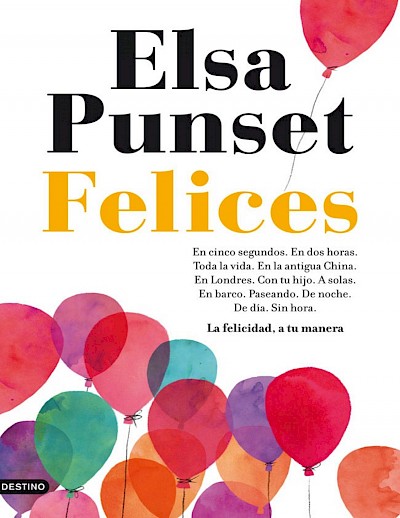How did you come to this conclusion? You have probably done it based on what others have told you, and also from your own life experience, which has been testing your limitations and strengths.
It may have taken you a while to decide who you are, but once you have made it clear, for better or for worse, you will have tried to be loyal and consistent with the person you think you are. This is what happens to almost everyone! Although we stumble over and over again on the same stone, we resign ourselves !: "This is who I am, I always do things the same".
Thousands of years ago, the great Chinese philosopher Mencius realized that asking "what am I like?" it is deceptive, it does not serve us. Why? Because everything changes constantly, including ourselves.
Humans prefer to think that everything, including us, is stable and controlled, because that offers us security and tranquility in an unstable world:
«I, what I like, my weaknesses, my strengths, what I do well, what I do wrong ...». Our life ends up revolving around that stable and rigid person that we have decided to represent us.
Mencius warns us that this way of thinking, although it is very common and the one that our brain prefers, is actually wrong. What are you describing when you describe yourself? You are only describing a series of behavior patterns: your customs, your preferences, your automatic way of responding, getting angry, falling in love, relating, working ... These are things you have learned throughout a life in which you You have been carried away by more or less automatic reactions: "I never confront my parents", "I always take a nap on Sundays", "I don't like to be spoken to before drinking coffee",
"It makes me nervous to be rushed", "I'm late", "I always like to tell the truth", "I don't like to be left alone", "I don't marry anyone".
When you talk like that, you are describing how you behave on a daily basis, nothing more.
The problem is that when you identify with your customs, you lock yourself in that tangle of routine. When you lock yourself into immovable behaviors - "that's me
me! I am like that! »- you are denying yourself the possibility of doing things differently, that is, of choosing to be someone else.
That, Mencius tells us, is like getting into a cage: you become a prisoner of behaviors that, if you wanted, you could change. And it is that in reality the world is open to change and full of opportunities, so that, if you want, you explore it and try different ways of doing, of behaving. Of thinking.
Mencius suggests to us how we can get out of our cage of customs. Tells us:
"I know how a farmer cultivates his land."
It is a beautiful invitation! Think about it: A farmer has land, and that land has a certain composition and is exposed to a certain climate. That is like your genetics: you are born with it.
But that is only the beginning: a good farmer is someone active, who knows his land and the conditions in which he works, and adapts his care so that those lands are as fertile as possible. He is listening to his fields! It prevents pests, tills the soil, fertilizes it if necessary or lets it rest when it is needed; plant good seeds and protect them from bad weather, until they sprout. A good farmer looks at the sky looking for signs of hail, bad weather, drought ... He decides when he wants to harvest. It is open to the discreet signals of nature to be able to anticipate, prevent or flow with changes.
